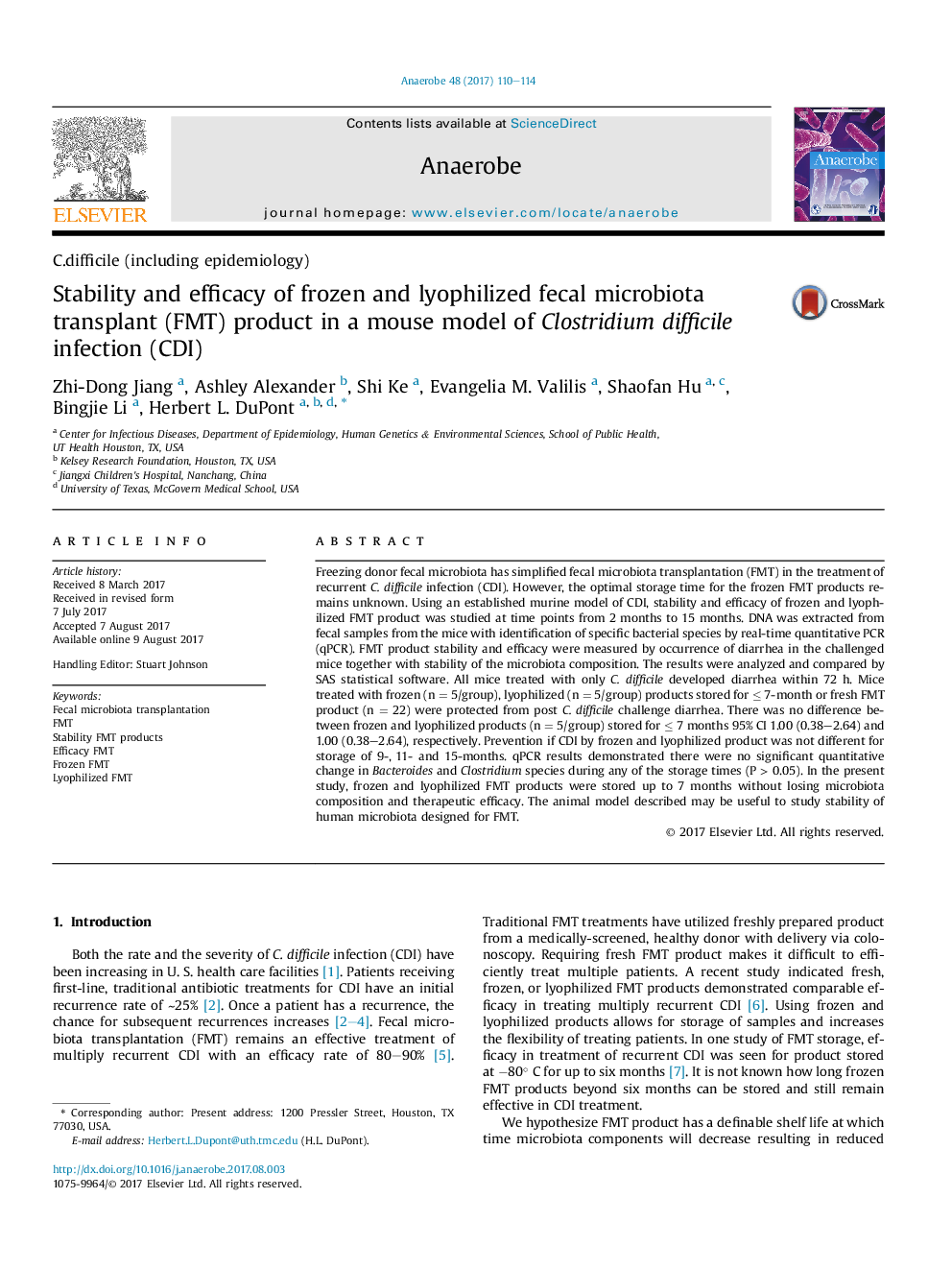| Article ID | Journal | Published Year | Pages | File Type |
|---|---|---|---|---|
| 5671356 | Anaerobe | 2017 | 5 Pages |
Freezing donor fecal microbiota has simplified fecal microbiota transplantation (FMT) in the treatment of recurrent C. difficile infection (CDI). However, the optimal storage time for the frozen FMT products remains unknown. Using an established murine model of CDI, stability and efficacy of frozen and lyophilized FMT product was studied at time points from 2 months to 15 months. DNA was extracted from fecal samples from the mice with identification of specific bacterial species by real-time quantitative PCR (qPCR). FMT product stability and efficacy were measured by occurrence of diarrhea in the challenged mice together with stability of the microbiota composition. The results were analyzed and compared by SAS statistical software. All mice treated with only C. difficile developed diarrhea within 72 h. Mice treated with frozen (n = 5/group), lyophilized (n = 5/group) products stored for â¤Â 7-month or fresh FMT product (n = 22) were protected from post C. difficile challenge diarrhea. There was no difference between frozen and lyophilized products (n = 5/group) stored for â¤Â 7 months 95% CI 1.00 (0.38-2.64) and 1.00 (0.38-2.64), respectively. Prevention if CDI by frozen and lyophilized product was not different for storage of 9-, 11- and 15-months. qPCR results demonstrated there were no significant quantitative change in Bacteroides and Clostridium species during any of the storage times (P > 0.05). In the present study, frozen and lyophilized FMT products were stored up to 7 months without losing microbiota composition and therapeutic efficacy. The animal model described may be useful to study stability of human microbiota designed for FMT.
